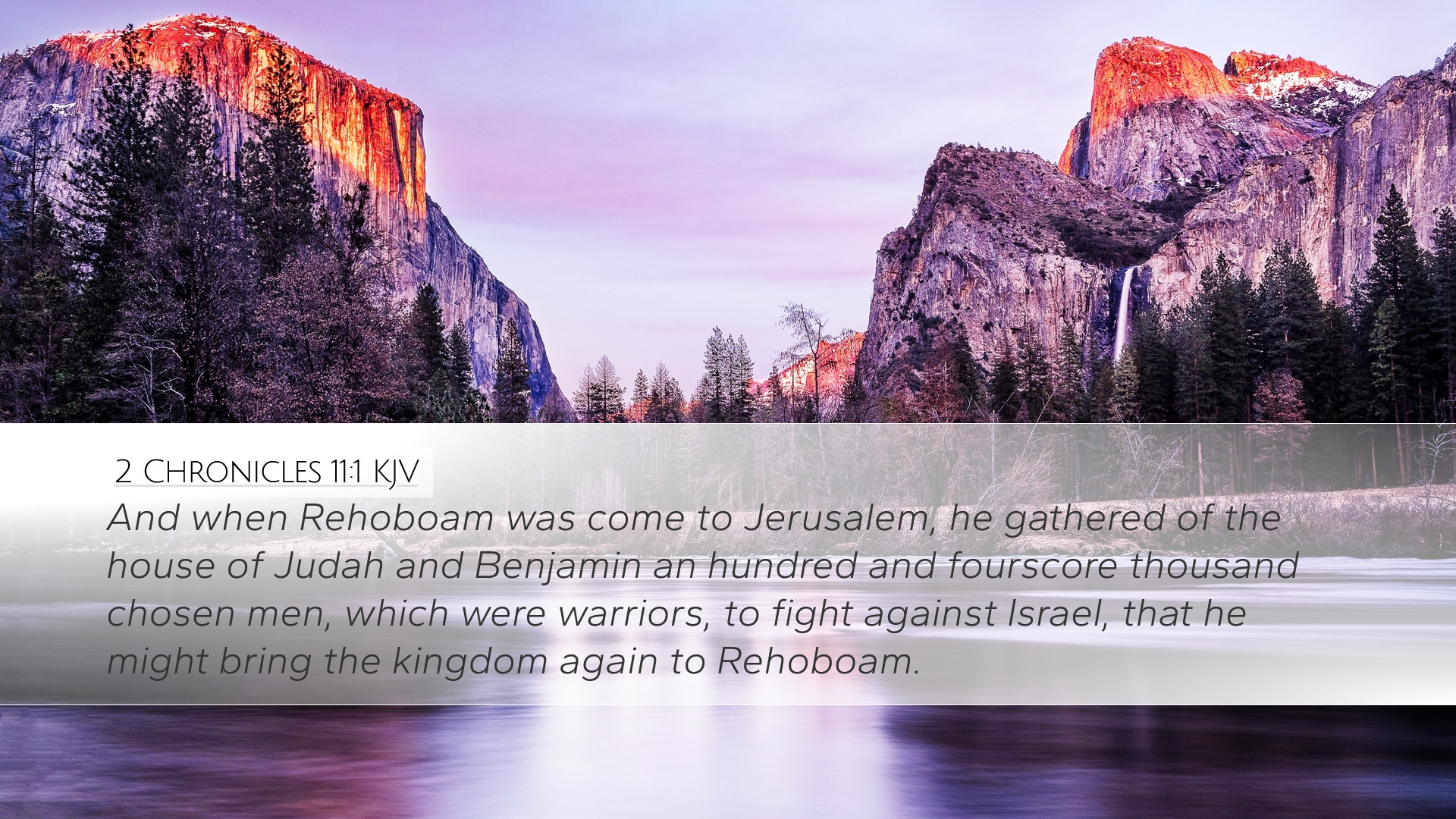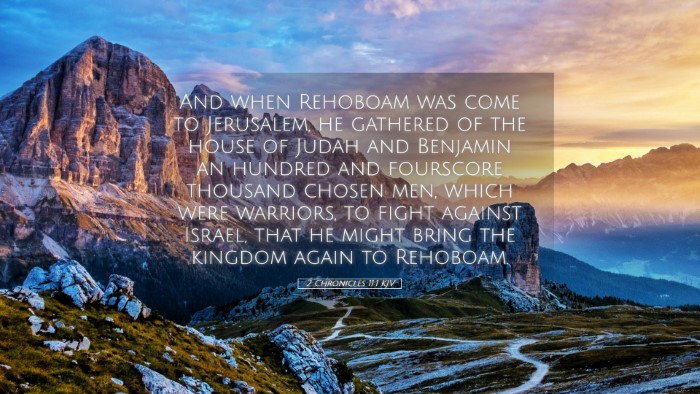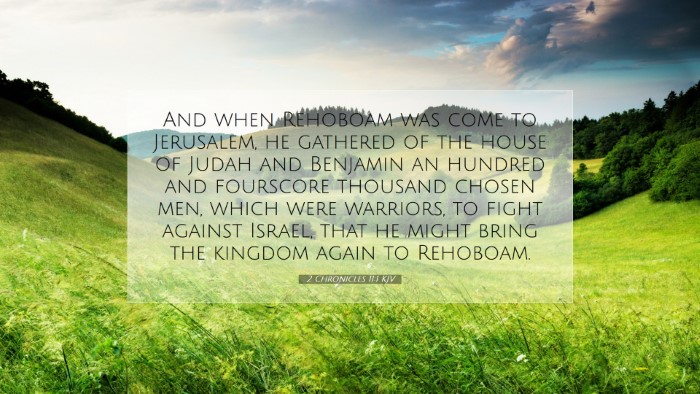2 Chronicles 11:1 Commentary
Verse Context: 2 Chronicles 11:1 states, “And when Rehoboam was come to Jerusalem, he assembled of the house of Judah and Benjamin and a hundred and fourscore thousand chosen men, which were warriors, to fight against Israel, that he might bring the kingdom again to Rehoboam.”
This verse marks a significant point in the history of the divided kingdom of Israel, capturing the moment after the death of Solomon and the subsequent rise of Rehoboam as king. The political tension following this transition is palpable, revealing both the spiritual and national divides among God’s people.
Historical Context
The book of Chronicles revisits the history of Israel and Judah, focusing on the temple and the proper worship of God. Following Solomon's reign, Rehoboam's ascension signals the beginning of a divided kingdom. The tension is exacerbated by Jeroboam's rise in the north, who leads ten tribes in rebellion against Rehoboam.
Insights from Commentaries
Matthew Henry's Commentary
Matthew Henry highlights the immediate reaction of Rehoboam upon receiving the news of the northern tribes' rebellion. He underscores the impulsiveness of assembling a large military force rather than seeking God's counsel. Henry notes that Rehoboam’s decision reveals a reliance on human strength rather than divine guidance, a profound lesson for today’s leaders.
Albert Barnes' Notes
Albert Barnes emphasizes the gravity of Rehoboam’s situation. He points out that the unification of Judah and Benjamin under Rehoboam’s command was already a crucial aspect of Israel’s fate. Barnes explains that Rehoboam's intentions were politically motivated, as he sought to re-establish his authority over the entire nation, reminding us that human kings often resort to force to maintain power.
Adam Clarke's Commentary
Adam Clarke provides a practical perspective on this narrative. He argues that Rehoboam's choice to prepare for battle signifies a lack of faith in God’s promises. Clarke elaborates on the ramifications of such actions, stating that when leaders depend on armaments instead of divine intervention, they risk leading their people down a path of destruction. He calls attention to the spiritual implications of conflict and the necessity of seeking God’s will in all affairs.
Theological Implications
This verse serves as a critical reflection point regarding leadership and faith in God's plan. The decision by Rehoboam to assemble an army can be seen as a manifestation of a lack of trust in God’s sovereignty and His decrees. It serves as a reminder to modern believers about the importance of aligning one’s actions with God’s will rather than resorting to human wisdom or strength alone.
Lessons for Today
- Trust in God's Counsel: Just as Rehoboam failed to seek God before making a crucial decision, believers today are reminded to seek divine guidance in every endeavor.
- Unity and Division: The assembly of armies can symbolize unity for some while signaling division for others. Reflecting on how our actions affect community dynamics is important, especially in the church.
- Human Effort vs. Divine Intervention: The reliance on force over faith raises significant questions about leadership in contemporary contexts. It invites believers and leaders to consider the balance of action and surrender to God's will.
Conclusion
2 Chronicles 11:1 serves as a rich source of theological reflection and practical application. The verse encapsulates a critical moment of transition and reveals the human tendency towards self-reliance in governance. As scholars, pastors, and theologians delve into this scripture, the lessons drawn can inspire a renewed commitment to seeking God's direction in all matters of leadership and community life.


